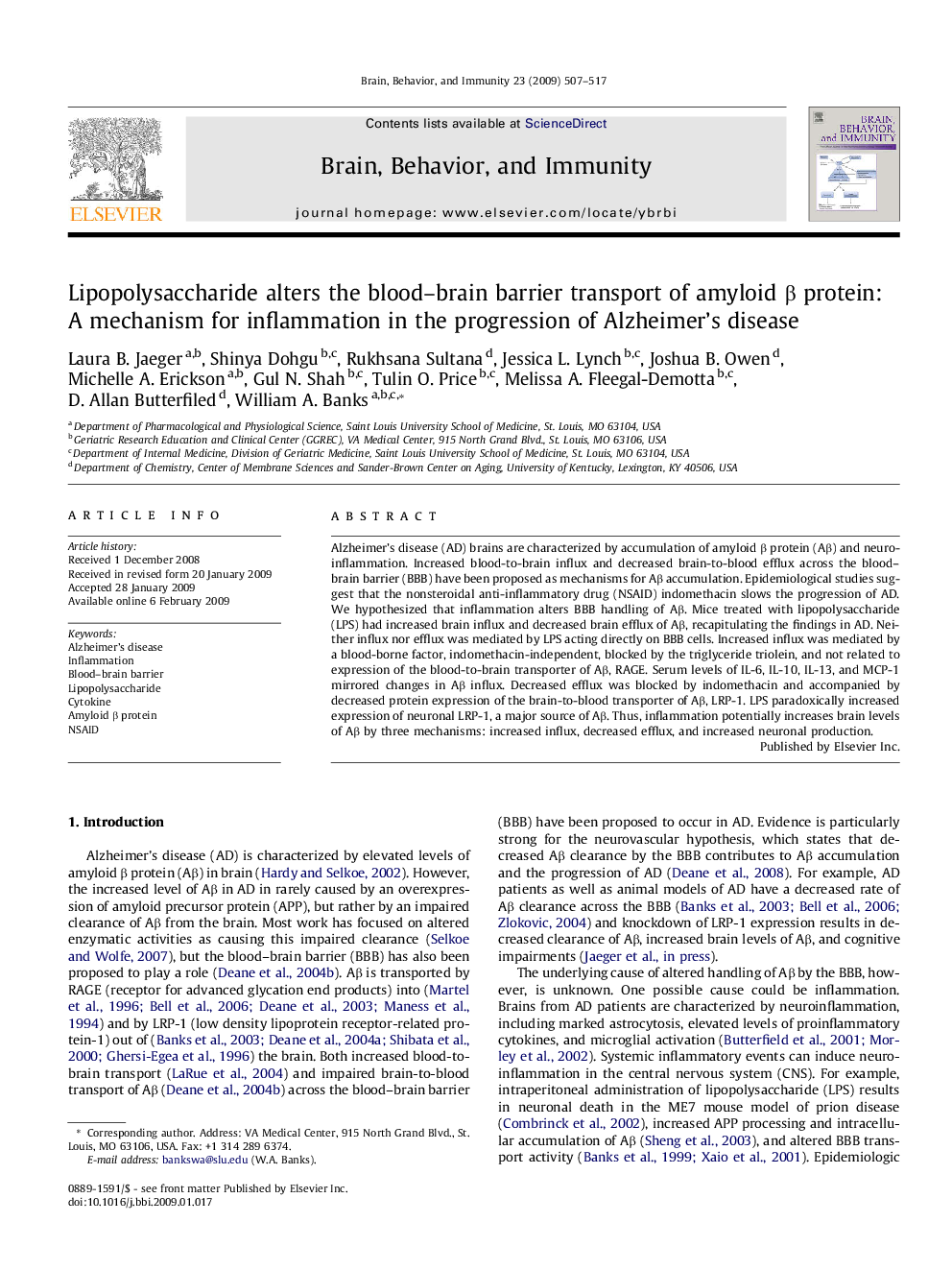| کد مقاله | کد نشریه | سال انتشار | مقاله انگلیسی | نسخه تمام متن |
|---|---|---|---|---|
| 922647 | 921054 | 2009 | 11 صفحه PDF | دانلود رایگان |

Alzheimer’s disease (AD) brains are characterized by accumulation of amyloid β protein (Aβ) and neuroinflammation. Increased blood-to-brain influx and decreased brain-to-blood efflux across the blood–brain barrier (BBB) have been proposed as mechanisms for Aβ accumulation. Epidemiological studies suggest that the nonsteroidal anti-inflammatory drug (NSAID) indomethacin slows the progression of AD. We hypothesized that inflammation alters BBB handling of Aβ. Mice treated with lipopolysaccharide (LPS) had increased brain influx and decreased brain efflux of Aβ, recapitulating the findings in AD. Neither influx nor efflux was mediated by LPS acting directly on BBB cells. Increased influx was mediated by a blood-borne factor, indomethacin-independent, blocked by the triglyceride triolein, and not related to expression of the blood-to-brain transporter of Aβ, RAGE. Serum levels of IL-6, IL-10, IL-13, and MCP-1 mirrored changes in Aβ influx. Decreased efflux was blocked by indomethacin and accompanied by decreased protein expression of the brain-to-blood transporter of Aβ, LRP-1. LPS paradoxically increased expression of neuronal LRP-1, a major source of Aβ. Thus, inflammation potentially increases brain levels of Aβ by three mechanisms: increased influx, decreased efflux, and increased neuronal production.
Journal: Brain, Behavior, and Immunity - Volume 23, Issue 4, May 2009, Pages 507–517